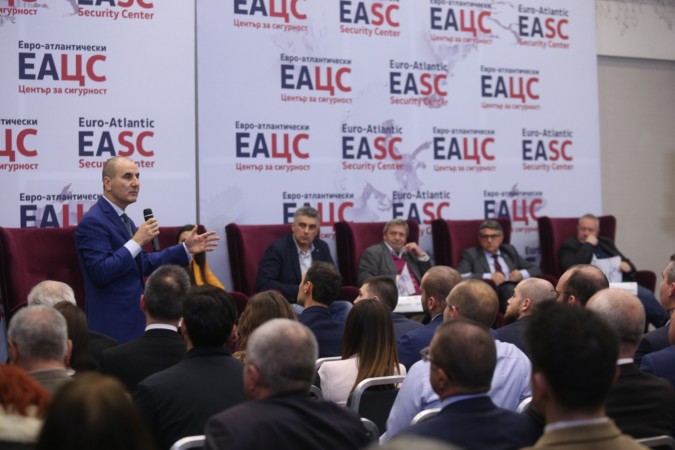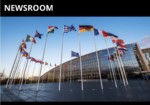Tsvetan Tsvetanov
Member of executive board of SESC
What we have gained during the transition in terms of values, freedoms, and rights must be safeguarded and defended on a daily basis,” said Tsvetan Tsvetanov during the roundtable "Thirty Years of Democracy - Where we started, what we have achieved, and where we want to be?", organized by the Euro-Atlantic Security Center (EASC) on 3rd December 2019. We must stand against hybrid attacks aiming at the distortion and replacement of our values, in the energy sector, we must protect our national interests through real diversification, we must counteract attempts at external influence in the Black Sea region, with our steadfast membership of the Euro-Atlantic area as a reliable member of the EU and NATO, explained Tsvetanov.
Tsvetanov said that despite the different interpretations of the period of transition, all democratically minded people in Bulgaria should agree on the conclusion that the Euro-Atlantic belonging of our country has no alternative.
A critical but constructive review of the years of transition was made by the political scientist Ognyan Minchev, the investigative journalist Hristo Hristov, the social anthropologist Haralan Alexandrov, the international relations expert Rumen Kanchev, the economist Krasen Stanchev, and the historian Evelina Kelbcheva. The De-communisation, the success and failures, the economics, the geopolitics, the psycho-social dynamics of the transition, as well as the presence of elements of the totalitarian past in the years of transformation were discussed. The meeting was moderated by the psychologist Rosen Yordanov and the EASC Executive Director Sofiya Petkova.
"I believe that, although controversial, the Bulgarian transition is one-directional and has achieved its main goals," said Sofiya Petkova. In turn, Rosen Yordanov underlined that one of the strategic goals of EASC is that our country does not change its Euro-Atlantic course.
Dr. Ognyan Minchev noted as success of the transition the democratization of the political system and the peaceful revolution of 1997, which brought institutional reforms and the transformation of the Bulgarian economy. The investigative journalist Hristo Hristov reviewed the process of decommunization, noting that opening the files was the biggest success in this respect. The social anthropologist Dr. Haralan Alexandrov drew attention to the parallel narratives of the transition and the different interpretations that often we are in danger of being imposed on us by someone else. Professor Rumen Kanchev emphasized the role of NATO and the EU after the end of the Cold War, noting that the most important thing for our country is to continue to fulfill its commitments within the two alliances. He also stressed the value of initiatives such as the Three Seas Initiative for counteracting external interventions in the Black Sea region. The economist Dr. Krasen Stanchev stressed that life has really improved, even though we have experienced extremely difficult economic times during the transition. Professor Evelina Kelbecheva pointed out as a major omission of the transition the inexperienced intellectual and moral catharsis, for whose achievement we should have started with culture and should have had a comprehensive state policy for studying and teaching the period of totalitarianism.
The event was attended by representatives of the academia, the non-governmental sector, public figures, intellectuals, contemporaries and active figures from the transition period, politicians, and citizens. The guests included Assoc. Prof. Emilia Zankina, Dr. Alexander Oscar, Svetla Zlateva, Ekaterina Boncheva, Evgeni Daynov, Gen. Atanas Atanasov, Georgi Stefanov, Sofia Cohen, Maxim Benvenisti, Ivanka Zhekova, Georgi Pandurov, Prof. Pavlina Dolashka, Zahari Karabashliev, Borislav Skorchev, Nikolina Shtereva, Goran Blagoev, Evtim Kostadinov, Representatives of the Atlantic Council of Bulgaria, representatives of 15 embassies from the diplomatic corps in our country.
The Euro-Atlantic Security Center (EASC) is an independent non-partisan non-governmental organization, established on 16th September 2019.
The mission of the Center is to contribute to individual and collective security in the Transatlantic area, as well as to encourage and enhance international and regional cooperation in the security sector.
Founder and President of the EASC Management Board is Tsvetan Tsvetanov.






Leave a Reply